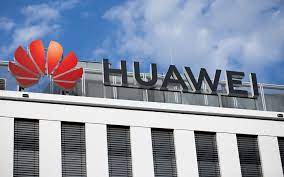The Fraud Hammer: DOJ and SEC Prosecute CEO of Silicon Valley Start Up

When prosecutors turn on you, watch out. The economy is full of fraudsters, many of whom escape detection. Conmen, liars and cheats abound – when they get caught, however, the consequences can be severe.
Interestingly, the SEC’s enforcement regime extends beyond the public markets and includes private companies. In the technology sector, there are numerous technology start-ups, all living for the dream to be acquired or to cash in with a public offering. The path to the golden reward is filled with risks and many have sought to cash in despite poor accounting controls and a non-existent commitment to ethics and compliance.
When DOJ steps in to prosecute a private company based on securities and wire fraud, the situation is often bleak. Even if the participants are able to escape a federal prosecution, the SEC is waaiting in the wings to bring its civil enforcement action. Companies and individuals ralrely make it through this one-two punch unscathed.
In a recent example, the co-founder and former CEO of Headspin , Manish Lachwani, was charged by DOJ in a criminal complaint with securities and wire fraud. The SEC filed its own civil case right behind DOJ. Lachwani was arrested right before the Labor Day weekend. Headspin provides a remote service to customers in order to access mobile devices around the globe. Headspin sells subscription services to customers.

Lachwani is charged with overstating revenue to investors and using these inflated financial statements to raise more than $100 million from investors. From 2015 to 2020, Headspin raised millions from four major rounds of financing – through the sale of Series A preferred shares; convertible promissory notes into future series B preferred stock; series B preferred shares; and Series C preferred shares.
In providing materials and presentations to potential investors, Lachwani reported false revenue and overstated key metrics. Lachwani himself maintained strict control over operations, sales and record-keeping, including invoicing and booking of revenue in the company’s financial records. On numerous occasions, Lachwanu included revenue from potential customers that did not actually purchase the service, from past customers who no longer did business with Headspin and inflated revenues from existing customers.
Lachwani falsely inflated the company’s key financial metrics and doctored its internal sales records. Lachwani created fake invoices and altered real invoices to make it appear as though customers had been billed higher amounts. Also, Lachwani enriched himself by selling $2.5 million of his HeadSpin shares in a fundraising round during which he made misrepresentations to an existing HeadSpin investor. According to the complaint, Lachwani’s fraud unraveled after the company’s Board of Directors conducted an internal investigation that revealed significant issues with HeadSpin’s reporting of customer deals, and revised HeadSpin’s valuation down from $1.1 billion to $300 million.
Lachwani provided investors false information that overstated Headspin’s annual recurring revenue – a key measure for evaluating software technology companies. The government alleges that Lachwani inflated revenue by approximately $51 to $55 million.

In May 2020, Headspin’s unaudited financial statements were reviewed by an auditing company. As an example of the misleading information included in financial statements, the auditing firm concluded that Headspin’s actual revenue from inception in 2015 to the first half of 2020 was only $26.3 million, instead of the $95.3 million originally claimed by the company. The audit firm also found that Headspin’s cumulative loss from inception in 2015 to the first half of 2020 totaled $15.9 million, instead of the $3.7 million net income originally reported by the company.
In 2018, Headspin’s Series B preferred fundraising round the revenue of the company was valued at approximately $500 million. The following year, the Series C fundraising round valued the company at approximately $1.1 billion. After the discovery of the overstated revenue, the valuation for the company dropped to approximately $300 million.















